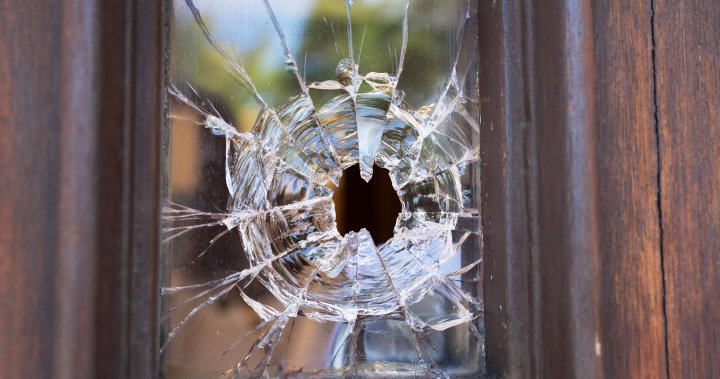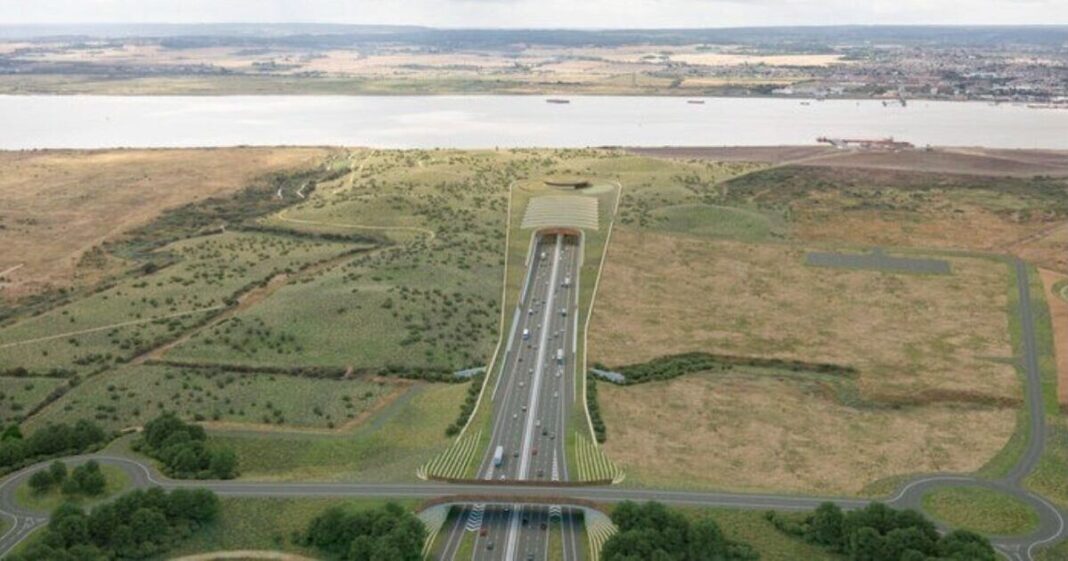
An extremist attack targeting Canada’s Jewish community is a “realistic possibility,” according to intelligence documents obtained by Global News that warn of “escalating antisemitic activity.”
Released almost a year after the Oct. 7 Hamas attack that triggered an Israeli military response in Gaza and Lebanon, the reports show that national security analysts fear anti-Jewish sentiment could lead to terrorism.
The government’s Integrated Terrorism Assessment Centre wrote in a June 24 memo that it was monitoring “the rising tide of antisemitism and violent rhetoric associated with the conflict in Gaza with concern.”
“A lone actor attack—inspired by a range of ideological or religious extremism such as neo-Nazism or DAESH [ISIS]—targeting Jewish interests in Canada is a realistic possibility,” said a July 10 memo.
“An attack on a low-security setting would likely involve unsophisticated weapons and planning,” added the document, speaking notes prepared for the director of the Canadian Security Intelligence Service.
“We continue to observe incidents of criminal intimidation, harassment and hate speech targeting Jewish communities in Canada, such as shootings at schools in Toronto and Montreal, and the arson event in Vancouver.”
“They are indicators of escalating antisemitic activity.”
Rabbi Andrew Rosenblatt at Schara Tzedeck synagogue, Vancouver, B.C., on May. 31, 2024. The Jewish Federation of Greater Vancouver said an “incendiary device” was thrown at the synagogue doors. THE CANADIAN PRESS/Ethan Cairns.
The de-classified materials on the Canadian national security implications of the Hamas-Israel conflict were disclosed to Global News under the Access to Information Act.
They were prepared in the months before Hezbollah leader Hassan Nasrallah was killed in an Israeli air strike on Beirut, raising concerns about retaliatory attacks around the world.
The Centre for Israel and Jewish Affairs said police had increased their presence at Jewish institutions across Canada following Nasrallah’s killing, which came just before the Oct. 7 anniversary.
“There is heightened concern, especially given the rhetoric coming from a variety of sources in the region, both Iran and Hezbollah and others who have sworn vengeance and retaliation,” said CIJA president Shimon Koffler Fogel.
“From the perspective of the Jewish community, I think that it offers some reassurance that local law enforcement is on top of it. They’re aware of things and are responding appropriately.”
Marked Secret and Canadian Eyes Only, the intelligence reports downplayed protests and university encampments as national security threats, but said a strike by a radicalized individual was a more likely scenario.
The documents come as ISIS has been trying to reassert itself since its 2019 defeat in Syria, and capitalize on the Middle East conflict to incite followers to carry out attacks against Jews.
“Daesh [ISIS] and Al Qaeda propaganda continue to reference the conflict,” ITAC wrote in a threat assessment report.
RCMP seize a vehicle after arresting Muhammad Shahzeb Khan, the suspect in an ISIS plot, in Ormstown, Que., on Sept. 4, 2024. PIERRE-PAUL POULIN/LE JOURNAL DE MONTRÉAL/AGENCE QMI.
The RCMP has disrupted two alleged terror plots linked to ISIS since July. A third, targeting the Jewish community in Ottawa, was stopped last December. Two minors were arrested.
One of the Ottawa suspects was in contact with ISIS, according to sources. Although the pair were allegedly radicalized before Oct. 7, the Hamas attack may have “accelerated” their plot, ITAC wrote.
In late July, the RCMP also arrested a father and son originally from Egypt, Ahmed and Mostafa Eldidi, as they were allegedly about to carry out an attack for ISIS in Toronto using bladed weapons.
A minor was arrested in Toronto in August on ISIS-related charges.
A Pakistani foreign student, Muhammad Shahzeb Khan, was subsequently arrested in Quebec on Sept. 4 as he was allegedly on his way to New York to carry out a mass shooting for ISIS at a Jewish centre.
At the same time, gunmen fired shots at Jewish schools in Montreal and Toronto, and an incendiary device was thrown at a Vancouver synagogue. Jewish schools have also faced bomb threats.
Such tactics “will likely continue,” according to an intelligence brief. “Shooting at empty schools could be seen as a low-risk tactic to effectively spread fear. Similar shooting incidents are possible in the near term.”
“As the conflict in Gaza continues, there have been frequent reports of antisemitic activities in Canada, including indicators of escalation towards potential violence,” ITAC wrote.

Canadian Jewish groups have been warning about the dangers of spiking antisemitism, and have asked for government action.
On Tuesday, CIJA, B’nai Brith Canada and Friends of Simon Wiesenthal Center released a joint statement calling for legislation that criminalizes the glorification of terrorism.
The proposed law would ban the public displays of the flags and other symbols of terror groups such as Hamas and Hezbollah.
“While many European nations, including the United Kingdom, France, and Germany, have enacted legislation that bans the public display of terrorist symbols, Canada has yet to take such a step,” said the letter to Attorney General Arif Virani.
“The absence of such laws allows individuals to promote and celebrate terrorist ideologies without facing legal repercussions. This oversight is corrosive to public order and serves to embolden those who seek to radicalize others and perpetuate hatred in our communities.”
Radicalization and the normalization of extremist ideology need to be a priority for Parliament, according to CIJA, which also wants “bubble legislation” keeping protesters away from Jewish institutions, and a ban on the group Samidoun.
“I worry about the failure to connect the dots,” Fogel said in an interview. “Lone actors still get their motivation from somewhere.”
He said the underlying problem was the “toxic potency” of the messages appearing online, at protests, and sometimes in religious discourse that was normalizing extremist language.
“All of this contributes to an individual’s inclination to act out on whatever other frustrations or prejudices they have,” he said.

Jews account for just one per cent of Canada’s population but are the most targeted religious minority for hate crimes, accounting for one out of every five incidents.
The numbers have surged by 71 per cent since Oct. 7 triggered the current regional conflict. Police are concerned about attacks timed to coincide with the anniversary of the Hamas attack.
Citing the potential for violence linked to events overseas and increased antisemitism, the Toronto Police Service said Wednesday it would be increasing its presence across the city.
Authorities have also been assessing events such as the annual Walk for Israel, organized by the United Jewish Appeal, which ITAC considered “an attractive target for violent extremists” because of its “overtly Jewish and pro-Israel messaging.”
The threat assessment said an attack at the June 9 event was unlikely, but if it happened it would be “unsophisticated” and involve “readily-available weapons” such as knives, blunt objects, vehicles or small arms.
Toronto police arrested six at the event, one for antisemitic messaging calling for violence, two for inciting hatred and another for assault. But there were no major attacks and a record crowd attended.
Stewart.Bell@globalnews.ca


